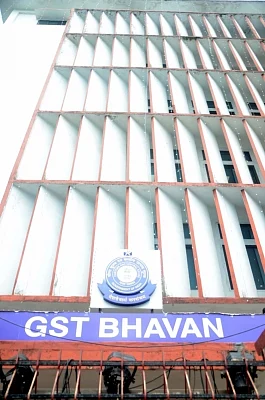By Vishal Gulati
New Delhi, April 5 (IANS) India's imposition of duty on Chinese solar cells and modules shipped and levy of Goods and Services Tax (GST) on panels have significantly slowed down solar capacity additions last year, a UN report said on Thursday.
It says developing economies, comprising India, China and Brazil, committed $177 billion to renewables last year, up 20 per cent, compared to $103 billion for developed countries, down 19 per cent.
This was the largest tilt in favour of developing countries yet seen. It was only in 2015 that the developing world first invested more in green energy than developed economies.
A record 157 gigawatts (GW) of renewable power, excluding large hydro, were commissioned across the globe in 2017, up from 143GW in 2016 and far out-stripping the 70GW of net fossil fuel generating capacity added last year.
The 86-page report -- Global Trends in Renewable Energy Investment 2018 -- released by UN Environment, the Frankfurt School-UNEP Collaborating Centre and Bloomberg New Energy Finance blames Indian policies for slowing down the speed to tap solar power.
It says the solar activity was held back by an unexpected rise in PV module prices in local currency terms, due to a sudden reduction in the oversupply of imported Chinese units, exacerbated by the imposition of a 7.5 per cent import duty on modules and a local GST on panels.
There was also a slowing in the pace of solar auctions around India.
In the medium term, PV installations look set to increase sharply, as India seeks to hit its ambitious target of 100GW of solar by 2022.
However, that acceleration did not materialise in 2017.
The report says the 'big three' of China, India and Brazil accounted for just over half of global investment in renewables, excluding large hydro, last year, with China alone representing 45 per cent, up from 35 per cent a year earlier.
However, the report says India's investment oscillating in the $6-14 billion range since 2010 but still not reaching the sort of levels that would be required for that country to meet Prime Minister Narendra Modi's ambitious goals for 2022.
India came fourth in the world rankings by country for renewable energy investment last year, at $10.9 billion, down 20 per cent.
Solar took the biggest share, at $6.7 billion, with wind at $4 billion. These lead sectors were up three per cent and down 41 per cent in dollar terms respectively.
Venture capital and private equity investment in renewable energy fell by exactly a third in the world in 2017 to $1.8 billion, just a sixth of its 2008 peak of more than $10 billion.
However, India beat Europe into second place for the second time in three years.
India's venture capital and private equity investment rose 27 per cent to $457 million, or 26 per cent of the total, while Europe's fell 26 per cent to $287 million, a 16 per cent share.
India's investment grew strongly because it secured three of the five largest deals.
Two of those were wind companies raising funds to expand in India, a fiercely competitive market with huge growth potential that is attracting many foreign investors.
The largest deal was secured by Greenko Energy, an independent power producer based in Hyderabad, which raised $155 million in PE expansion capital from GIC, the sovereign wealth fund of Singapore, and the Abu Dhabi Investment Authority.
The pair had already invested $230 million in the company in 2016.
Another Indian independent power producer, Hero Future Energies, raised $125 million in PE expansion capital from the International Finance Corporation and the IFC Global Infrastructure Fund.
The third large Indian deal was secured by Clean Max Enviro Energy Solutions, which claims to be India's biggest rooftop solar developer, having installed 100MW since the company was founded in 2011.
"The extraordinary surge in solar investment, around the world, shows how much can be achieved when we commit to growth without harming the environment," UN Environment head Erik Solheim said in a statement.
(Vishal Gulati can be contacted at vishal.g@ians.in)
--IANS
vg/him/vm
(This story was auto-published from a syndicated feed. No part of the story has been edited by The Quint.)
